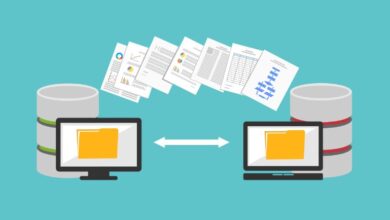
From Data to Dollars: Using SQL to Boost Your Online Business
Have you ever wondered how thriving online businesses stay ahead of the curve? The secret lies in data. Whether running a small online store or a large e-commerce platform, your success depends on how well you manage your data. This is where Microsoft SQL can help. Microsoft SQL Training can give you the skills to organise, analyse, and use data to make smarter business decisions.
So, What is SQL? Structured Query Language (SQL) is a powerful tool for database interaction. It helps businesses store customer details and generate reports that guide business growth. Let’s explore how SQL can help your online business thrive.
Why SQL Matters for Your Online Business
Every click, purchase, or sign-up generates data. Without proper management, this data can go to waste. SQL allows you to turn raw information into actionable insights. By learning SQL, you can:
- Identify customer buying patterns
- Improve inventory management
- Track marketing campaign performance
- Optimise website content based on user behaviour
With SQL, you can make data driven decisions that improve efficiency and increase revenue.
How to Get Started with SQL for Your Online Business
Getting started with SQL does not have to be complicated. Here are a few simple steps:
-
Learn the Basics
Start with simple queries to retrieve and organise data. Understanding SELECT, INSERT, UPDATE, and DELETE commands will help you gain confidence. Practising basic commands regularly can improve your efficiency. Learning how to filter and sort data can provide better insights. Mastering basic functions like COUNT, SUM, and AVG can enhance data analysis.
-
Use SQL for Reporting
Create reports to track sales and customer engagement. SQL helps generate insights by aggregating data, allowing you to monitor business performance effectively. Utilising reporting tools alongside SQL can provide comprehensive visual data analysis. Creating scheduled reports can help in tracking trends over time. Using conditional statements within reports can provide deeper insights into specific business areas.
-
Automate Business Processes
Set up automated queries to handle routine data tasks. Automating repetitive processes such as updating inventory and sending alerts can save time and reduce errors. Scheduled SQL jobs ensure operations run smoothly without manual intervention. Automating customer data updates can improve marketing accuracy. Using triggers can ensure data consistency across different tables.
-
Invest in Training
Consider taking structured learning, such as Microsoft SQL training, to master advanced techniques. Gaining in-depth knowledge from experts can accelerate your learning curve. Hands-on practice during training sessions can provide real-world experience. Registering for online courses can offer flexibility in learning. Certification can help validate your SQL skills to potential employers.
-
Learn Advanced Features
Once you are comfortable with the basics, dive into advanced topics such as indexing and performance tuning. These features can significantly enhance your database’s efficiency and speed. Understanding complex joins and query optimisation can further improve your skills. Mastering window functions can help in complex calculations. Implementing partitioning strategies can improve large data set performance.
-
Experiment with Real-World Projects
Applying your SQL knowledge to real-life scenarios can boost your understanding. Work on projects like building an inventory management system or analysing sales data to gain practical insights. Developing dashboards using SQL can help in business decision-making. Testing different indexing strategies can improve query efficiency.
-
Stay Updated with Industry Trends
SQL evolves regularly as fresh tools and methods are added. Staying ahead may be achieved by following trends like cloud-based databases and data warehousing solutions. Following industry blogs and attending webinars can keep you informed. Exploring the latest SQL features can give you a competitive edge.
-
Utilise Online Resources and Communities
Platforms like forums, tutorials, and SQL-focused communities can provide valuable learning materials and support. Engaging with other learners and professionals can offer solutions to challenges and new perspectives. Participating in SQL hackathons can enhance practical skills. Joining social media groups dedicated to SQL discussions can offer regular insights.
Final Words
Learning SQL can help your online business grow by providing helpful information, smoothing processes, and enhancing customer interaction. SQL is essential for creating effective data plans, whether you’re a beginner or want to improve your database skills. Consider taking a course with The Knowledge Academy to develop your SQL skills and stay ahead in the competitive market.



